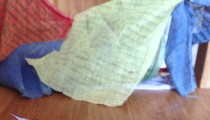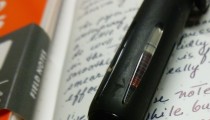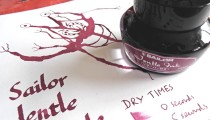This is my first review posted here so be gentle…
A beginners guide to pen and ink drawing
Pen and ink art can be an affordable and efficient way to start drawing. The pens are easy to transport and, compared to other artist materials, the ink is relatively inexpensive.
However, the permanence of ink drawing can strike fear in beginner artists. Luckily, The Pen Company is here to show you how putting pen to paper doesn’t need to be scary and how incredible your pen and ink drawings can be.
What is pen and ink drawing?
Pen and ink art is the process of using pens to apply ink to a surface.
It has been popular with artists for many years, originating in ancient cultures. One of the earliest surviving pen and ink drawings is The Abduction of Briseis, drawn by an unknown Greek artist using pen and dye on papyrus around 300 BC.
Later, Leonardo da Vinci popularised the precise effect of pen and ink art in his work Five Grotesque Heads (1494) during the Renaissance era.
Michelangelo, Van Gogh, Rembrandt, and Picasso also used pen and ink to create many of their famous works. The drawing style survived multiple art movements and is still a popular mode of expression today.
Nowadays, most pen and ink drawings use black ink, which allows pen and ink artists to show high contrast. The result is a clear, clean, crisp image with lots of detail.
Pen and ink drawing techniques
Artists can use several pen and ink drawing techniques to create shading transitions. A combination of the below results in a remarkably textured and lifelike drawing.
Hatching
Hatching is considered one of the most basic pen and ink drawing techniques.
In hatching, the lines go in the same direction within a specific area and do not cross over each other. The closer the lines are, the darker the shading. Beginner artists often use a ruler to get straight lines or a more architectural finish.
Cross-hatching
Cross-hatching is similar to regular hatching, except that the lines cross. You start with the basic hatching technique, then create another layer of lines that overlap at different angles. Cross-hatching creates deep shadows and texture, with more layers resulting in denser shading.
Contour
Contour helps create the illusion of shape, as the lines follow the curve of an object. The technique is similar to hatching, except the curved lines are imperfect. Lines closer together will give a stronger shadow effect.
Cross-contour
A similar process to cross-hatching, cross-contour involves layering curved lines at different angles to build up shadow density.
Random lines
Artists use random lines to create various textures in an ink sketch. This technique can be one unbroken line or a few very long lines, curving and overlapping at random points. This technique can be more challenging to master, but increased confidence results in more exciting and textured ink pen art.
Stippling
Stippling adds many dots to give the illusion of shadow and depth, and highly concentrated dots create a deeper shadow. Many pen and ink artists use this technique with a small, nibbed pen to have greater control over their drawings.
Circular
Circular patterns create light and dark shadows in pen and ink drawings, with small circles creating more dense shading. This technique captures natural textures, such as scales or foliage.
Thin and thick lines
Experimenting with pen pressure results in varying line thickness. A combination of thickness creates different levels of shading – thicker lines create dramatic shadow, while mixing up your line weight gives the image more texture.
Pen and ink drawing tools
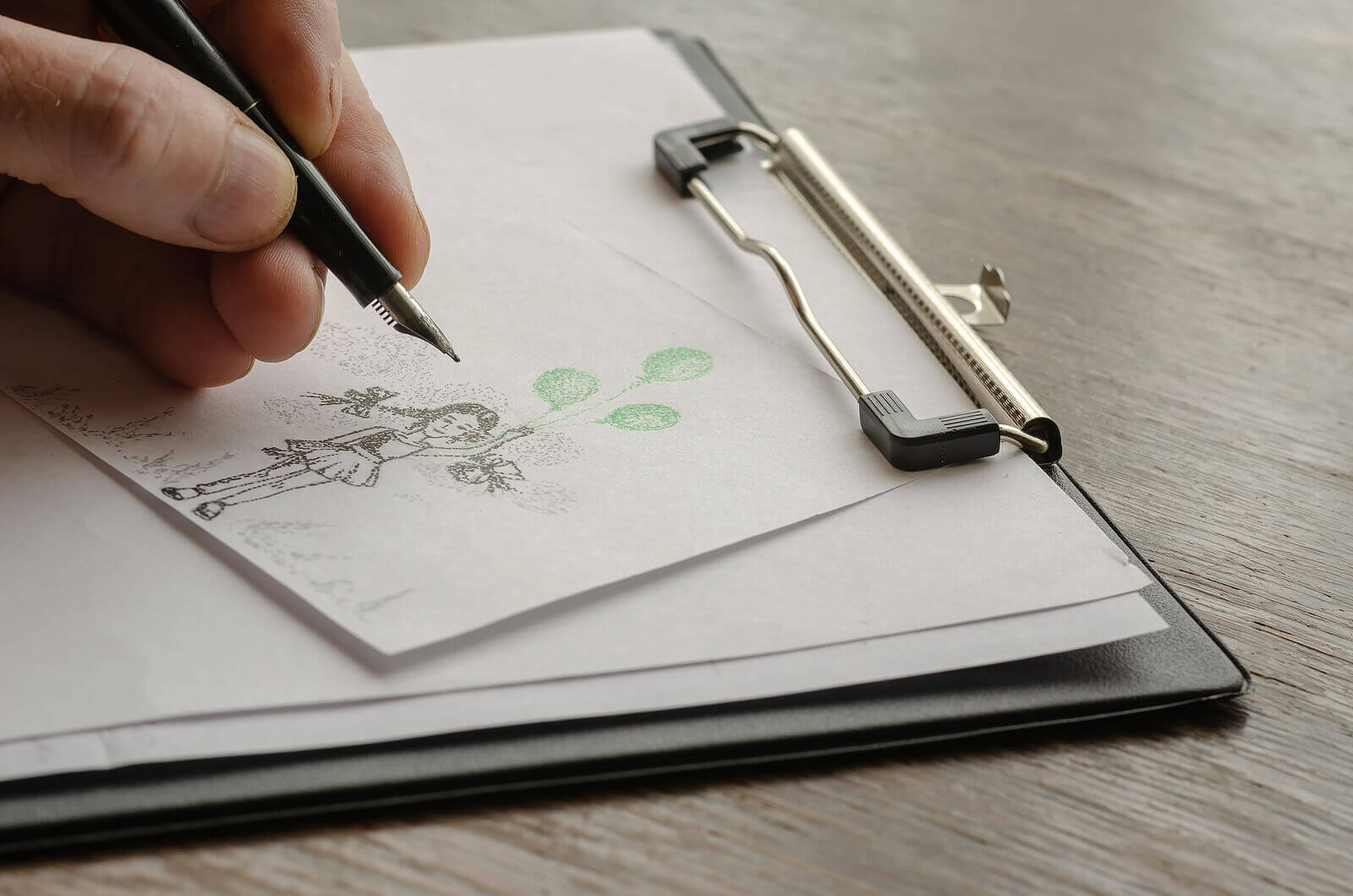
Creating beautiful pen and ink drawings is easy – you’ll need a decent pen, good quality paper, and patience.
Pens
Pen and ink artists use several pen styles. Using a mixture of tools can make your work more distinct and allow you to develop your unique style.
Fountain pen drawing is akin to ink art of the past, and unlimited ink colours can make for an eye-catching piece. This pen style can be trickier to draw with, but ink splatters and subtle inconsistencies are also part of its charm.
Fineliner pens feature very fine nibs, ideal for adding small details to your drawings. They are the most straightforward pen for beginners to draw with, as they have a fixed nib width. Many fineliner pens are also waterproof, which means the artist can add another element to their drawing with a watercolour or ink wash later.
Brush pens often feel and look like a fine paintbrush and function similarly. Light pressure results in a fine line, while more pressure creates a thicker line. They are best for experimenting with weight and line width, offering more variation in your pen and ink drawing.
Paper
Pen and ink art isn’t only about the pen. Selecting the right paper can make all the difference with your pen and ink drawing workbook.
Choose artist-grade, good-quality paper with a smooth finish for best results. Thicker paper will also ensure your ink or wash doesn’t seep through.
Other ink drawing tips
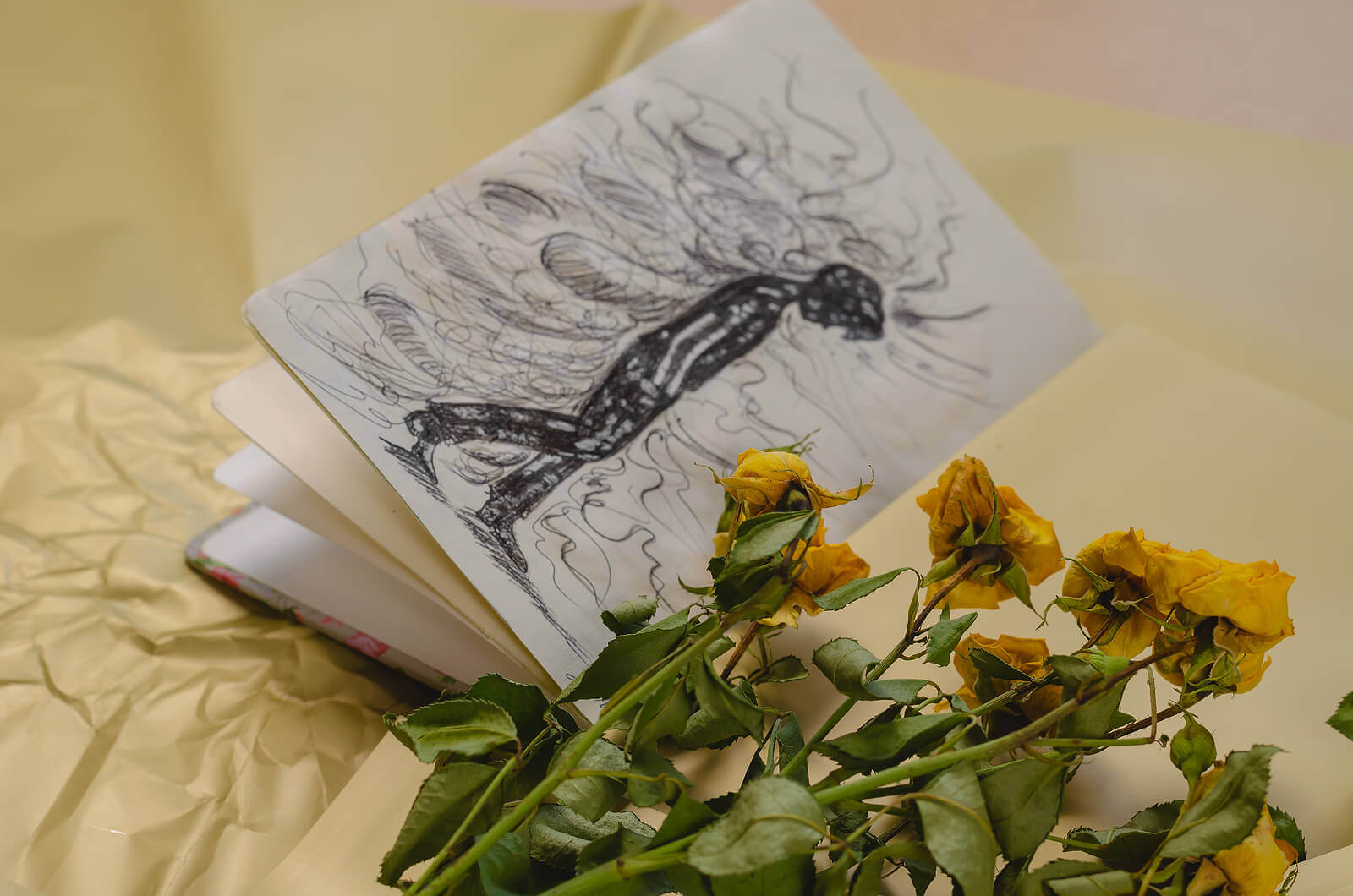
Once you’ve selected your pen and paper and have a good understanding of pen and ink drawing techniques, there are just a few more things you need to know to begin.
Sketch first
As a beginner, it’s a good idea to sketch your ink art in pencil first. You can then go over it in ink and add more detail. Doing so will get you used to drawing in ink, the permanence of which can be daunting for some people.
Consider an ink wash
Using water with your ink sketch is a popular artist method. One technique involves rubbing water into the fresh ink to create softer tones and exciting contrast, and it also helps your drawings appear more lifelike.
Ink washing is diluting your ink drawing by dragging a puddle of water across the page, similar to watercolour painting techniques. The higher the concentration of ink, the denser your shadowing.
Mix up your pen hold
Changing how you hold your pen can add extra detail and uniqueness to your work. For example, holding the pen at the end creates a loose grip that could give your usually controlled drawings a different feel.
Use dry pens
Dry pens can offer a brush-like stroke to your ink pen art towards the end of their life, adding more texture. Something to consider next time you go to throw out your old drawing tools.

